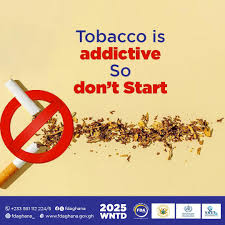The Food and Drugs Authority (FDA) has addressed concerns raised in the recent BBC Africa Eye investigative report titled Who is Flooding West Africa with Opioids?
The report exposed the alleged distribution of unapproved opioid-based drugs by Indian pharmaceutical company Aveo Pharmaceuticals, through Westfin International, to several West African nations, including Ghana, Nigeria, and Côte d’Ivoire.
In response, the FDA categorically stated that it has never registered tapentadol or carisoprodol as single-ingredient drugs nor approved Tafradol, a combination of the two, for any medical use in Ghana.
In a statement, the authority further disclosed that its Centre for Import and Export Control (CIEC) has never processed an import permit application for Tafradol or similar brands, emphasizing that these products remain unauthorized within the country.
“During the BBC investigation, the FDA was contacted and unequivocally confirmed that these drugs are unapproved and illegal for importation.
“This exposé reinforces the Authority’s longstanding enforcement efforts against the illegal importation of unregistered drugs and substances of abuse, including Tramadol, Trafanol, Tarapamol, and Tramaking. Through rigorous surveillance, the FDA has imposed fines, seized illicit drugs, and ensured their safe disposal.”
Food and Drugs Authority (FDA)
Tapentadol, a potent opioid, poses a high risk of addiction and severe side effects, including respiratory collapse and death.
Similarly, carisoprodol, a muscle relaxant used in some countries, can lead to dependency and cognitive impairments.
Despite the FDA’s crackdown, illegal variants of these substances continue to surface in various parts of Ghana, particularly in Tamale.

The FDA disclosed that on December 18, 2023, a shipping container declared for transit to Niger was intercepted with 181 cartons of Royal 225mg (Tapentadol and Carisoprodol), 51 cartons of Timaking 120mg, and 90 cartons of Tafradol 120mg. “These were seized and disposed of following a court order dated January 16, 2025, with destruction completed on February 21, 2025.”
A similar operation in May 2024, led by the FDA in collaboration with National Security, Narcotics Control Commission, Ghana Revenue Authority, and the Bureau of National Investigations, intercepted 376 cartons of Tramadol Hydrochloride 225mg (Tramaking 225mg) hidden among 50 cartons of laboratory coveralls. “These were safely disposed of in October 2024.”
The FDA further revealed that through sustained efforts it has confiscated approximately 287,011 units of Tramadol, ranging from 50mg to 225mg, as well as 8,576 units of Tramadol and 2,053 units of Tramaking from border posts, over-the-counter medicine sellers, and hawkers.
According to the Authority, none of the seized products had manufacturer details.
Regulatory Sanctions and Industry Impact
The FDA, working with agencies such as the Ghana Revenue Authority, Narcotics Control Commission, National Investigation Bureau, Port Health, and Ghana Police Service, has intensified regulatory actions.
The authority stated that perpetrators involved in the illegal sale and distribution of opioids face stiff penalties, including administrative fines and criminal prosecution. “Currently, the FDA is prosecuting six Over-the-Counter Medicine Sellers for the illegal sale and distribution of Tramadol and other opioids.”

It also indicated that Samos Pharma, a company mentioned in the BBC investigation, is a registered importer of injections and eye drops from FDA-inspected Indian manufacturers.
However, records from 2022 and 2023 show that Westfin International and Aveo Pharmaceuticals were major exporters to Samos Pharma.
The FDA noted that it has since directed Samos Pharma to sever ties with these companies and has suspended the Good Manufacturing Practices (GMP) certificate of Aveo Pharmaceuticals.
Additionally, the registration process for six products submitted by Masters Pharmaceutical Limited, a Kumasi-based company that sought to use Aveo Pharmaceuticals as a contract manufacturer, has been halted.
Moreover, the FDA pointed out that it has long implemented stringent measures to combat opioid abuse. In 2018, based on the FDA’s recommendations, the Minister of Health issued Executive Instruments E.I. 167 and E.I. 168.

“Executive Instrument 167 banned the manufacture and sale of codeine-containing cough syrup, while Executive Instrument 168 reclassified Tramadol as a controlled substance, restricting its manufacture, sale, and distribution despite its absence from international control lists.”
Food and Drugs Authority (FDA)
The FDA reaffirmed its dedication to safeguarding public health, emphasizing that it will continue collaborating with relevant stakeholders to thoroughly investigate the concerns highlighted in the BBC Africa Eye exposé.
The authority stressed that ensuring the safety and integrity of all regulated pharmaceutical products in Ghana remains a top priority.
It assured the public that proactive measures, including stricter monitoring, enforcement actions, and policy interventions, would be taken to curb the illegal importation and distribution of unapproved drugs.
READ ALSO: Israel Strikes Military Targets In Southern Syria







